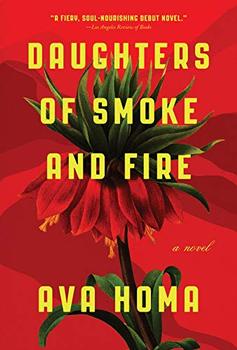Summary | Excerpt | Reading Guide | Reviews | Beyond the book | Read-Alikes | Genres & Themes | Author Bio

Aline Ohanesian's debut novel, Orhan's Inheritance, is a coming-of-age story in which a young man grows to understand how the past can impact the present - sometimes in unexpected ways.
When Orhan's grandfather Kemal dies, he leaves behind a baffling clause in his will: The family house is to go to someone Orhan has never heard of before — a woman named Seda Melkonian, living in a California nursing home. So Orhan travels from his home in Turkey to the United States with the dual goals of getting Seda to sell the property back and to discover how Seda knew his grandfather, Kemal. In the process Orhan uncovers family secrets that he never remotely suspected.
Told in chapters that alternate between the 1990s and Seda's past, Orhan's Inheritance explores the WWI Armenian genocide through her survivor eyes. The book's contemporary sections are its strength and are the parts that ring the most true. Orhan's gradual realization of his country's history and his determination to not let the past be forgotten are exceptionally well done. Reading these sections was like watching a flower blooming from a closed-up bud to a glorious blossom.
Seda's point of view about her personal history also gave me pause. She points out that sometimes survivors are simply tired of repeatedly having to relay experiences they'd rather never think of again. During the course of the novel, an exhibit opens at Seda's nursing home that concentrates on the genocide:
She wants nothing to do with it. But the other residents have fallen under a confessional spell. They're like ancient tea bags steeping in the murky waters of the past, repeating their stories over and over to anyone who will listen. Who can blame them? Driven from their homes not by soldiers this time, but by their own loved ones, to this place so cleverly labeled "home," a second exile. In some ways, Seda thinks it's worse than the first: to the lexicon of horrific memories is added the immense shame of surviving, of living when so many others did not. Yet they all bask in their rediscovered relevance. But all the words in every human language on earth would not be enough to describe what happened.
Ohanesian's writing is at its most personal as she describes the immense generational burden that the children and grandchildren of the survivors seem to inherit. Seda's niece, Ani, tells Orhan: "My mother nursed me with mother's milk but also with sorrow. It flowed from her heart to her breast, into my insides where it probably still rests. She herself had ingested the same from her mother. They call it transgenerational grief now. We call it being Armenian." Indeed, the author acknowledges she needed to write this book for her sons so that they understand the transgenerational grief they themselves have inherited from her, which in turn was passed down from her Armenian grandparents.
The story Seda eventually narrates to Orhan is both touching and appalling as she describes the way ethnic Armenians were treated by their Turkish neighbors and friends. One wouldn't expect a book that details a genocide to be trauma-free, but the author makes a conscious choice to soften the horror; she alerts readers early on, for example, to the fates which befall Seda's family members. This is both a strength and a weakness; on the one hand, it prevents this tragic tale from overwhelming sensitive readers, but on the other, it dilutes the emotional impact, lessening the shock value as scenes revealed earlier are relayed in more detail.
My biggest criticism is that the author seems to want to cover so much ground, exploring so many aspects and facets of the characters' lives, that several plot lines are less than well integrated at best and superfluous at worst. Seda's story in particular seems to peter out rather than resolve satisfactorily, and important questions related to her eventual move to California remain unanswered. Ohanesian's writing is more than good enough to compensate for these missteps and and the overlapping storylines are engrossing.
Orhan's Inheritance is an impressive debut, and I'm eager to read future works by the author. Her portrayal of this period of Turkish/Armenian history is spot-on, and most readers of historical fiction will enjoy the novel. Book groups in particular will find that its complex themes, centering on important topics such as memory and forgetting, what makes a family, and the desperate actions one may need to take to survive in adversity, will likely lend themselves to lively discussion.
![]() This review was originally published in The BookBrowse Review in April 2015, and has been updated for the
February 2016 edition.
Click here to go to this issue.
This review was originally published in The BookBrowse Review in April 2015, and has been updated for the
February 2016 edition.
Click here to go to this issue.

If you liked Orhan's Inheritance, try these:

by Abraham Verghese
Published 2025
Winner: BookBrowse Fiction Award 2023
From the New York Times–bestselling author of Cutting for Stone comes a stunning and magisterial epic of love, faith, and medicine, set in Kerala, South India, and following three generations of a family seeking the answers to a strange secret.

by Ava Homa
Published 2021
The unforgettable, haunting story of a young woman's perilous fight for freedom and justice for her brother, the first novel published in English by a female Kurdish writer.
The less we know, the longer our explanations.
Click Here to find out who said this, as well as discovering other famous literary quotes!
Your guide toexceptional books
BookBrowse seeks out and recommends the best in contemporary fiction and nonfiction—books that not only engage and entertain but also deepen our understanding of ourselves and the world around us.